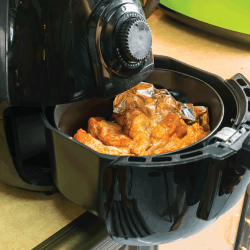Believe it or not, oils used in your kitchen are not created identically. You may find yourself following a recipe and reaching for your olive oil, only to discover you're out! On the shelf, you notice an entire bottle of vegetable oil and wonder if it's possible to use vegetable oil in place of olive oil? Our team has researched this topic and has discovered if vegetable oil and olive oil are interchangeable.
In most recipes, you can substitute vegetable oil for olive oil as a 1:1 substitution. If your recipe requires 1 cup of olive oil, you may replace it with 1 cup of vegetable oil.
However, you may notice a difference in flavor. Extra virgin olive oil that has been cold-pressed can add a flavor you won't get from vegetable oil. Beware, the flavor in your recipe may change due to the flavor of olive oil.
When it comes to cooking with certain oils, you need to think carefully about your recipe and how the oil will be used. We will discuss the differences between vegetable oil and olive oil and the various uses for each of these oils. You may also be curious about what else you could use as a substitution for olive oil.
Keep reading to learn more about what kind of oil will work best for you and your repertoire of recipes.
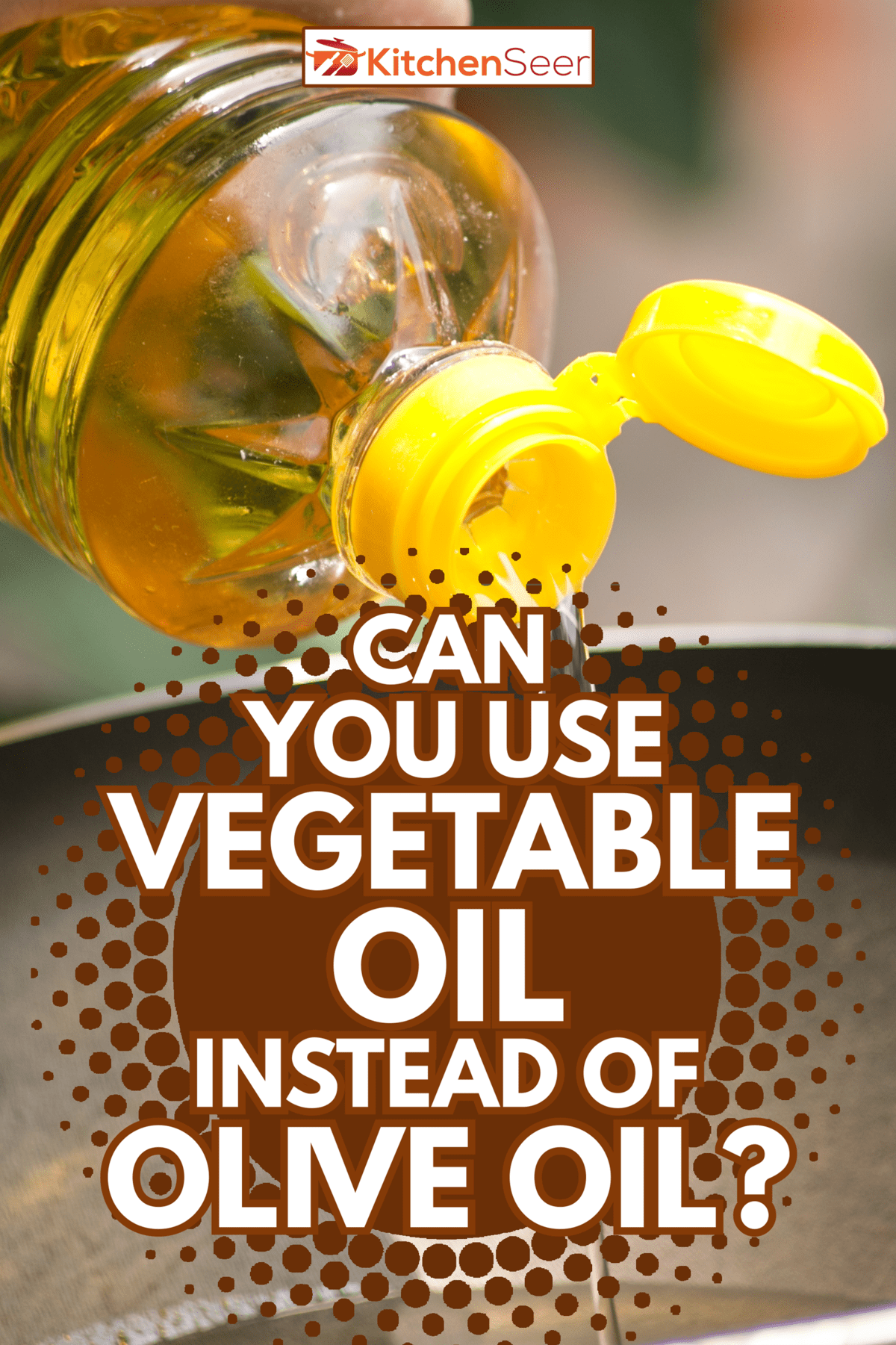
Are Olive Oil and Vegetable Oil the Same?
Olive oil and vegetable oil are quite distinct from one another. Both oils can be used in various ways but don't have much else in common.
Olive Oil
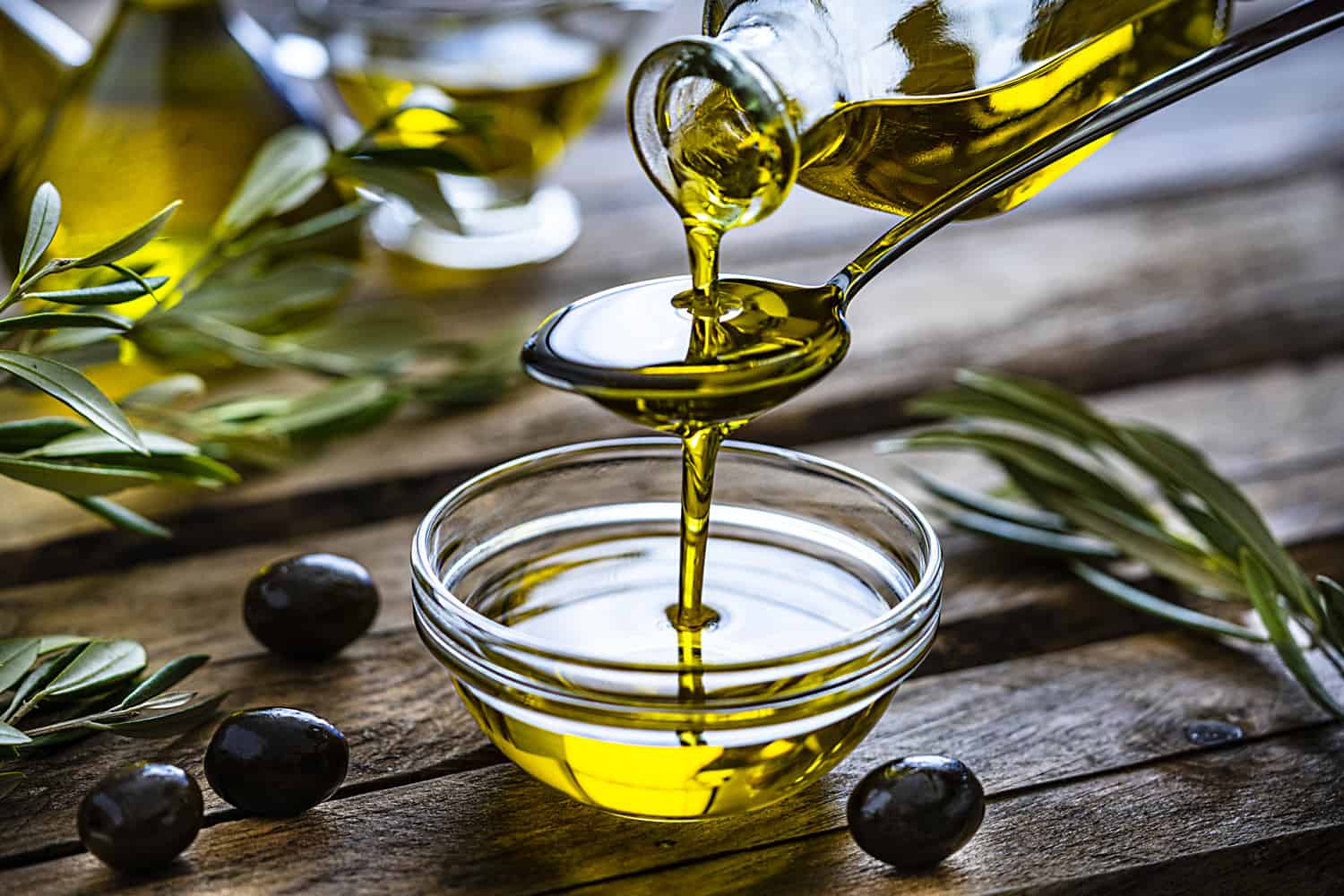
Olive oil is often known as the best of the best when it comes to oils. It is also known as a healthy oil. Who knew oil could be beneficial? According to Healthline, olive oil contains primarily healthy monounsaturated fats, which can help regulate blood sugar and lower your risk of heart disease. It is also filled with many antioxidants and Vitamins E and K. These antioxidants can help with inflammation or chronic disease.
Olive oil is made from the fruit of an olive tree. The olives are then pressed, and this primary squeeze gives the oil its robust flavor and aroma. Extra virgin olive oil is the least pressed and refined, so it has the most intense flavor and the most antioxidants.
You will, however, pay more money for extra virgin or virgin olive oils. The purer it is, the more costly it is. Olive oil is more expensive than vegetable oil.
Depending on the ripeness or variety of olive, the color of olive oil can range from light green to more golden. High-end olive oil can have a fruity aroma with an herb-like flavor, with a hint of a peppery bite on the back end. Some may say it may even have a hint of nuttiness.
Again, the flavor profile is determined by how many times it has been pressed. The more it is pressed and refined, the less intense of a flavor it will have.
Click here to find this extra virgin olive oil on Amazon.
Vegetable Oil
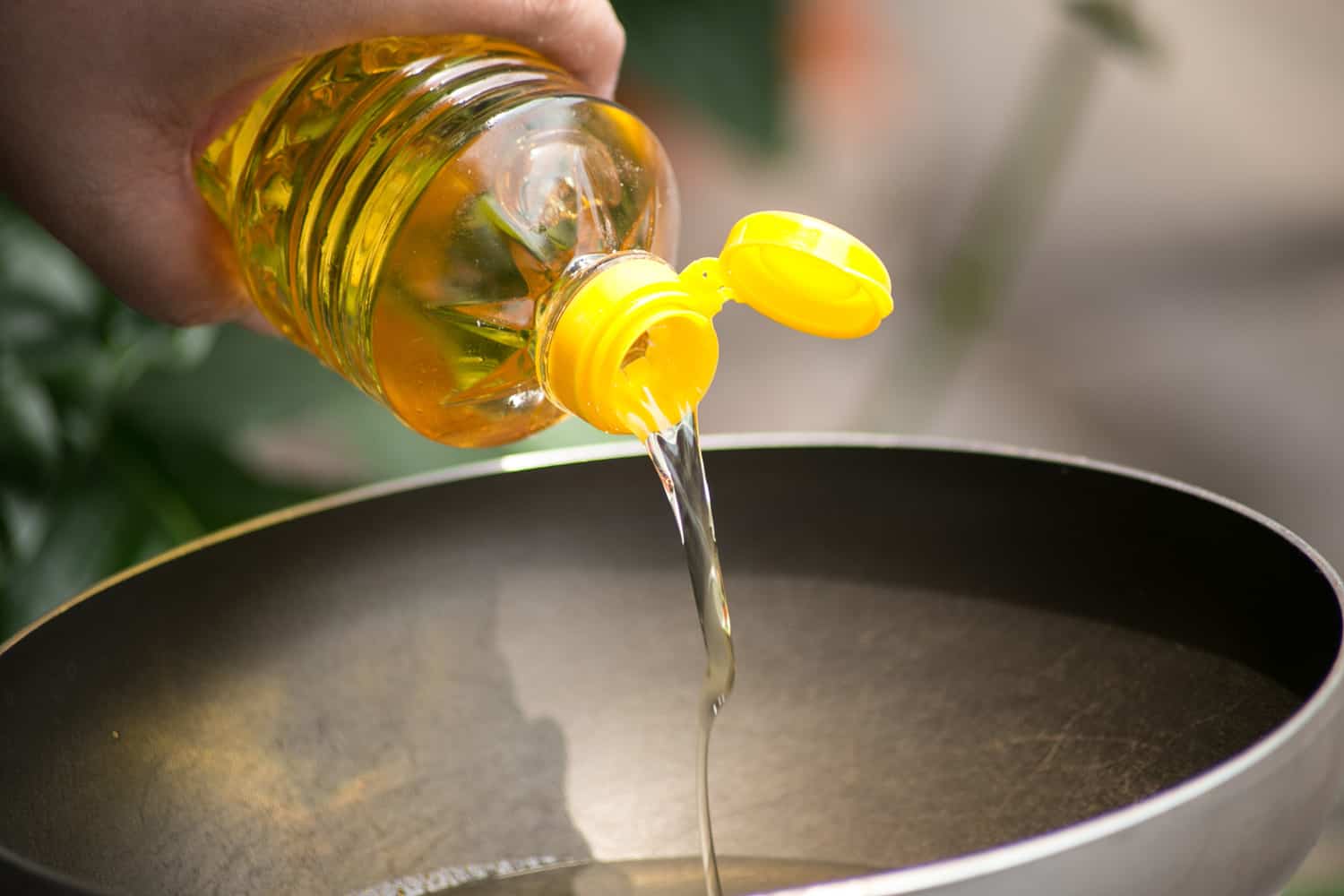
Alternatively, vegetable oil is made by extracting the oils from plant sources, such as nuts, seeds, fruits, and grains. To extract the oil from these sources, high heat is used, and the oil is later refined. This process will remove any taste, smell, or color from the oil. The color will almost always be golden, and it will have a very neutral flavor.
Some oils extracted from these plant sources can be distinguished as a particular plant source, such as peanut, sunflower, canola, or corn oil. Or, these oils can be blended to make a collective oil known as vegetable oil.
Vegetable oil has zero taste, so this is a great choice when you need oil but don't want to add any flavor. It is also relatively inexpensive compared to high-end olive oils.
Check out this vegetable oil on Amazon.
How Do I Know Which Oil to Use?
Some recipes tend to be very specific on which kind of oil to use. As noted earlier, olive oil has a very distinct flavor, and that flavor will be tasted when you use it in cooking. Here are some various ways to use these oils and the recommended oil for each.
Deep-Frying
Who doesn't love a good deep-fried piece of chicken or some breaded deep-fried vegetables? When deep-frying any foods, it is best to use a neutral oil such as vegetable oil. The flavor of olive oil would be much too strong for deep-fried foods. Additionally, olive oil has a smoke point of between 325-405ºF, while vegetable oil's smoke point is 450ºF. Olive oil may burn while deep-frying, and vegetable oil can be fried at fairly high temperatures without burning.
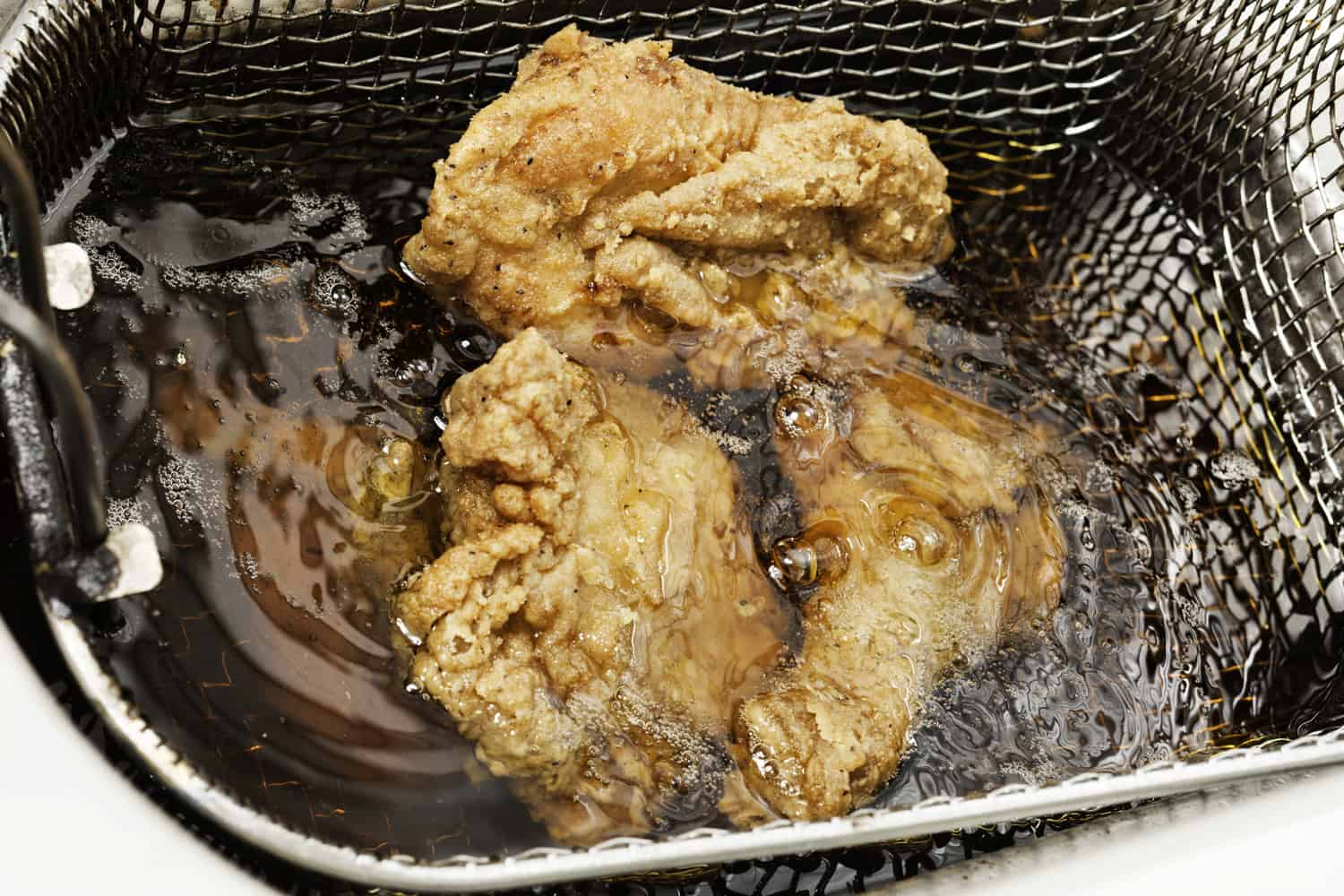
Marinating
Marinating meat or vegetables is a great way to add a deeper, more interesting flavor. Most of the time, marinades call for some type of oil. Using olive oil in marinades will add a punch of flavor you won't get using vegetable oil. Feel free to use olive oil instead of any other oils in marinades. You won't be sorry!
Try this delicious steak marinade using olive oil.
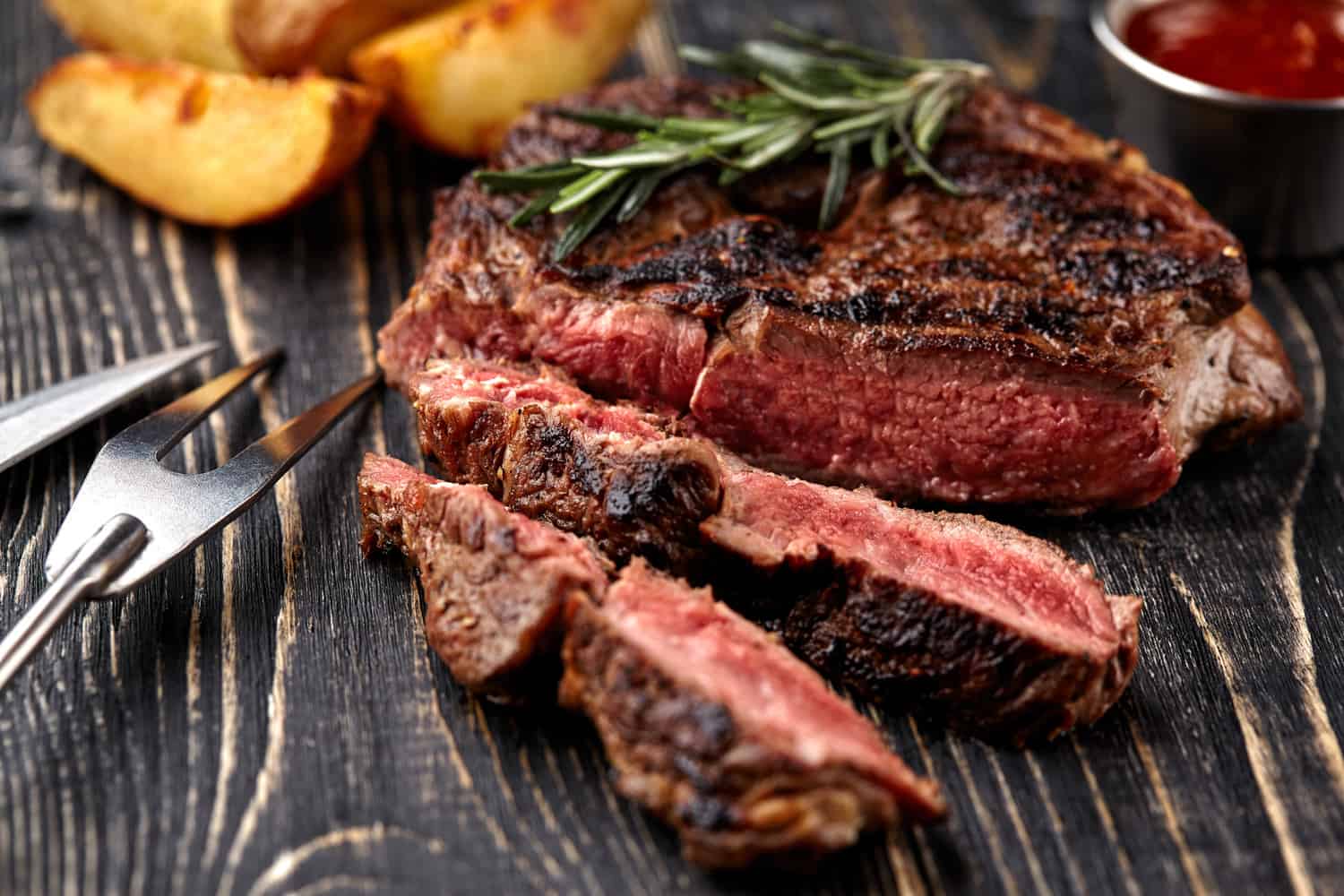
Salad Dressings
Making your own salad dressing is quite simple. Most homemade salad dressings or vinaigrettes require some type of oil. Olive oil is the ideal oil for dressings because of its robust and glorious flavor. Using an extra-virgin or virgin olive oil will provide an exquisite flavor to your dressing you can't achieve by simply using vegetable oil.
Here is a recipe for a basic vinaigrette with variations included.
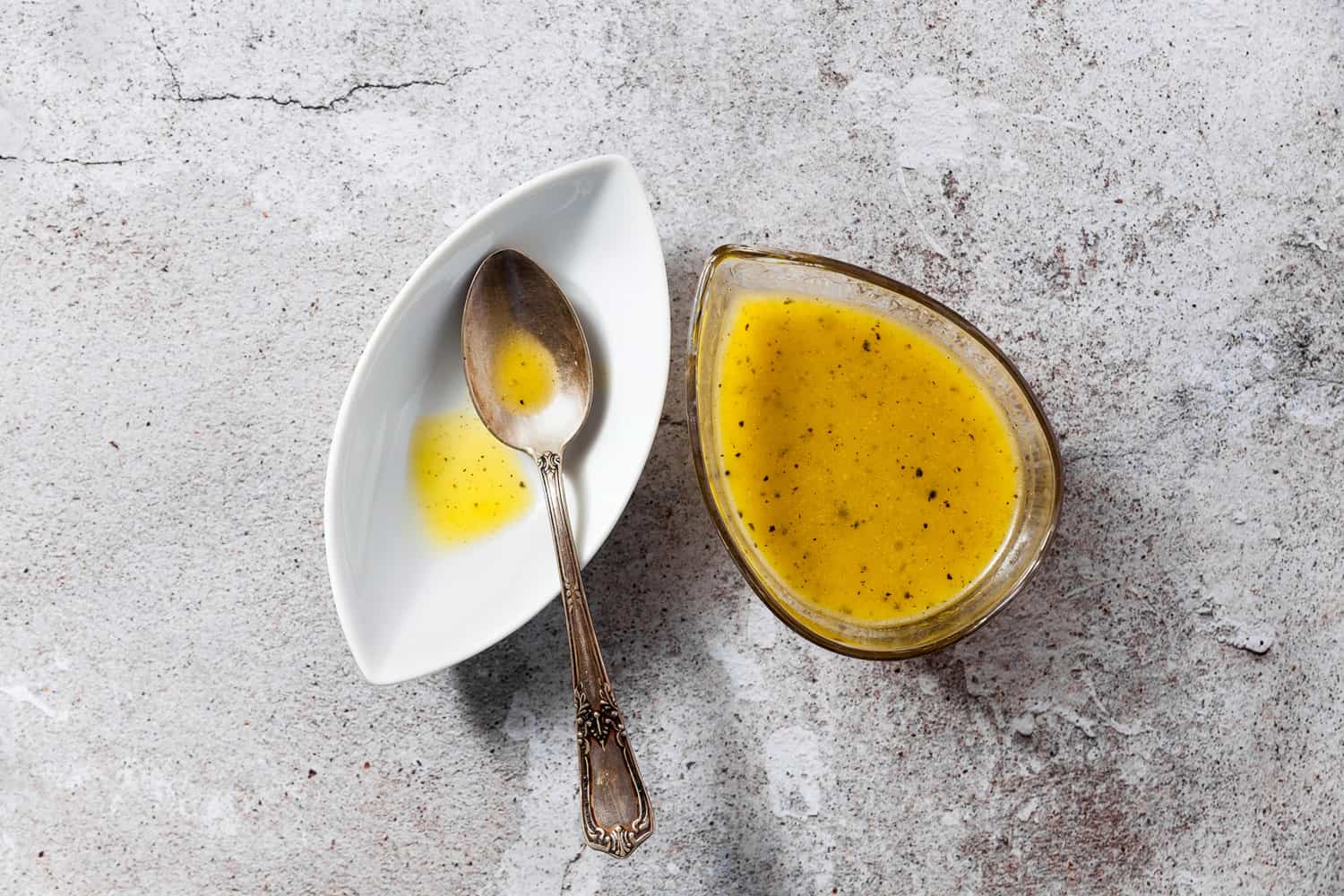
Baking
If a baking recipe calls for vegetable oil, it is probably best to stick to the recipe and use vegetable oil. Because of its strong flavor, the olive oil may alter the taste of your cookies or cakes, overpowering other flavors in the dish. Neutral vegetable oil is ideal because it won't change the flavor but will still provide the necessary fat.
If you find yourself in a pinch and have little to no vegetable oil, olive oil will work but will change the flavor. We recommend using lighter and milder olive oil or use a combination of vegetable oil and olive oil. Remember, the taste will differ if using olive oil in baked goods.
Certain recipes, such as this olive oil cake, call specifically for olive oil, but generally, most recipes for baked goods will call for a neutral oil.
Sauteing
Olive oil works great when sauteing or stir-frying vegetables. When pan-frying, the temperature rarely gets higher than 350ºF, so you won't have to worry about your olive oil burning. Also, you aren't using large amounts of oil, so the flavor of the olive oil will add just the right touch to your dish.
Because extra virgin olive oil is so expensive, you may want to opt for a lighter or less costly oil when using olive oil to saute. Save this more expensive oil for dressings or dips, where you can taste its enhanced flavor.
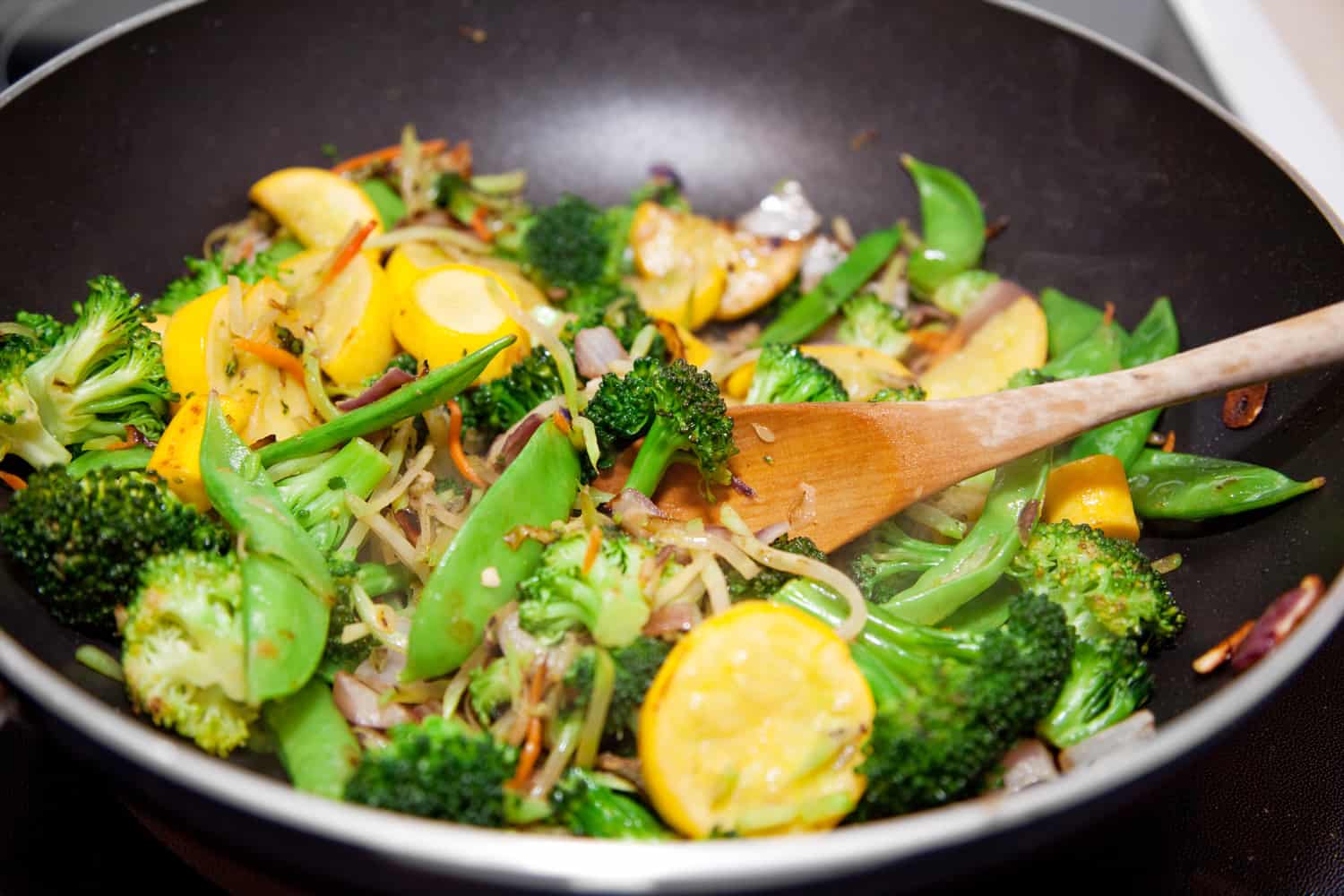
What Else Can I Use in Place of Olive Oil or Vegetable Oil?
There are so many oils on the market today! Here are some alternatives if you have neither olive nor vegetable oil.
Grapeseed Oil
This is a neutral oil with a mild flavor. It doesn't taste similar to olive oil but would work as an excellent substitute if you are looking for an oil with flavor. Try it in your dressings, sauteing, or as a dip for bread. You can even use this for deep-frying as it has a smoke point of 475-500ºF.
Find this grapeseed oil on Amazon.
Coconut Oil
Coconut oil is an excellent choice if you are roasting or sauteing. You can also use melted coconut oil in baking if you are in a pinch. Don't use this in marinades or dressings, as it will turn to a solid when sitting at room temperature or colder.
You can find this particular coconut oil on Amazon.
In Summary
As you can see, when it comes to using vegetable oil in place of olive oil, there are a few things to remember. Olive oil will provide more flavor than ordinary vegetable oil. So if flavor is what you're looking for, choose olive oil, preferably extra virgin or virgin. Olive oil provides more health benefits than vegetable oil as well.
But, if you are cooking at high temperatures or want a neutral oil that has no flavor, like in baking, vegetable oil is the way to go. Ultimately, as the chef, it is up to you to decide what oil you most prefer.
Click on the following links to discover more about cooking oils:
What Is The Best Container For Olive Oil?










